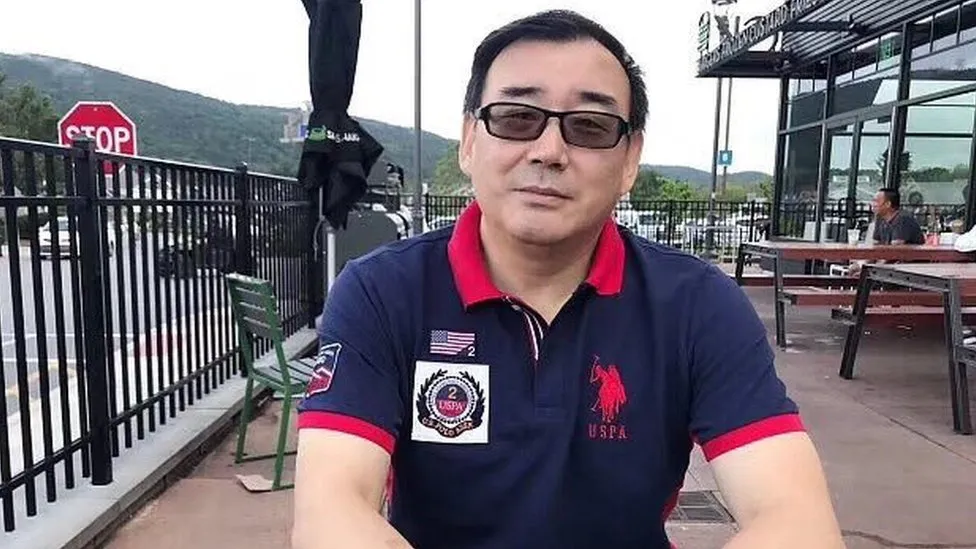Yang Hengjun: Australian writer given suspended death sentence in China
Australian writer Yang Hengjun has been given a suspended death sentence by a Chinese court, five years after he was arrested and accused of spying.

The sentence may be commuted to life imprisonment after two years, according to Australian officials.
Dr Yang - a scholar and novelist who blogged about Chinese state affairs - denies the charges, which have not been made public.
The Australian government says it is "appalled" by the outcome.
It comes after a landmark visit to China by Prime Minister Anthony Albanese late last year, which was aimed at improving relations that had been deteriorating in recent years.
Foreign Minister Penny Wong has summoned China's Ambassador to Australia for an explanation, and on Monday said the government would be "communicating" its response to Beijing in "the strongest terms".
"We have consistently called for basic standards of justice, procedural fairness and humane treatment for Dr Yang, in accordance with international norms and China's legal obligations," she said in a statement.
"All Australians want to see Dr Yang reunited with his family. We will not relent in our advocacy."
Australian officials have previously raised concerns about his treatment, but China's foreign ministry has warned them not to interfere in the case, and to respect the nation's "judicial sovereignty".
Chinese foreign ministry spokesperson Wang Wenbin told reporters that Dr Yang's case had been "rigorously handled" in accordance with the law and that his litigation and consular rights had been respected.
Dr Yang's supporters have described his detention as "political persecution".
"He is punished by the Chinese government for his criticism of human rights abuses in China and his advocacy for universal values such as human rights, democracy and the rule of law," his friend, Sydney academic Feng Chongyi, told the BBC.
Dr Yang, who previously worked for China's Ministry of State Security, was nicknamed the "democracy peddler" but his writings often avoided direct criticisms of the government.
He was living in New York but travelled to Guangzhou in January 2019 with his wife and her child - both Chinese citizens - on a visa run when he was intercepted at the airport.
The 58-year-old's case has mostly unfolded behind closed doors since then, including a secret trial in 2021.
Human Rights Watch Asia Director Elaine Pearson said his case has raised a "myriad" of due process concerns and the outcome is "outrageous".
"He has had delayed and limited access to legal representation, a closed door trial - and Yang himself has alleged torture and forced confessions during his interrogations," she told the BBC.
Dr Yang still has avenues of appeal available, Ms Wong said, but his Australian-based sons have previously said his health is failing and that he is not receiving medical treatment.
Ahead of Mr Albanese's trip to Beijing last November, Dr Yang's sons wrote to the prime minister to ask for his help in securing their father's release, citing his declining health.
His detention - and that of Australian journalist Cheng Lei in 2020 - contributed to souring ties between Beijing and Canberra, but those relations have been stabilising since a change of government in Australia in 2022.
However, Lowy Institute senior fellow Richard McGregor told the Sydney Morning Herald Dr Yang's new sentence would likely have a "severe impact on bilateral relations" between the two countries.
"It displays on a wide screen the opacity of the Chinese legal system, its imperviousness to reasonable requests by foreign governments on behalf of their citizens, and its vindictiveness to people who challenge it," he said.
"This sentence is at the most extreme end of the spectrum in terms of what could have been expected. The inescapable conclusion is that he will die in prison."
-bbc






